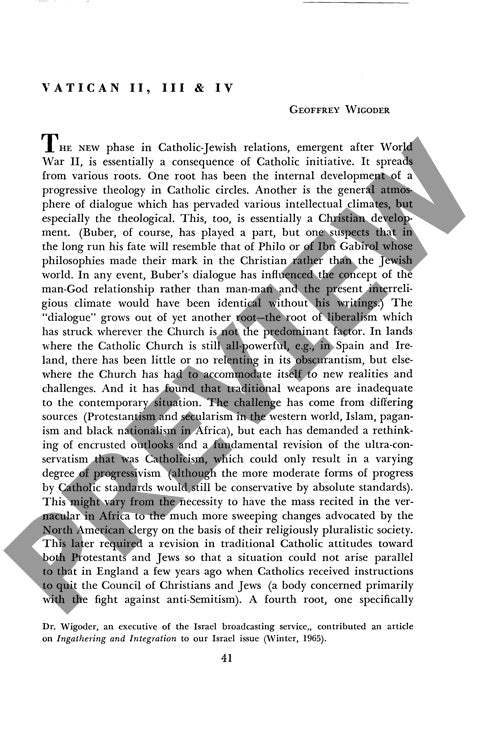Vatican Ii Iii and Iv
Couldn't load pickup availability
The Second Vatican Council marked a revolutionary shift in Catholic-Jewish relations, yet its outcomes emerged from a complex web of theological reform, political maneuvering, and institutional soul-searching in the shadow of World War II. Through historical analysis of Council proceedings, official documents, schema revisions, and contemporary Catholic scholarly interpretations, four primary catalysts for improved interfaith dialogue emerge: progressive theological development within Catholic circles, the rise of interfaith dialogue culture, liberal accommodation to religious pluralism, and institutional guilt regarding Catholic contributions to anti-Semitic sentiment. Jewish communities responded with three distinct approaches: anti-interventionist Orthodox positions demanding dialogue between equals, non-interventionist strategies viewing the matter as internal Church business, and interventionist efforts to shape doctrinal outcomes. Contemporary accounts by Xavier Rynne and Michael Serafian reveal significant disagreements over papal intentions and curial influence on Council proceedings. While Vatican II established an irreversible precedent for progressive Catholic-Jewish dialogue, its implementation faced ongoing challenges from Arab diplomatic opposition and internal Church power struggles. Despite these procedural limitations and theological compromises, the Council's legacy would fundamentally reshape interfaith relations, transcending immediate institutional constraints to establish new foundations for religious cooperation.

More Information
-
Physical Description
-
Publication Information
Published 1965
ISBN
-
Publication Credits
Geoffrey Wigoder

